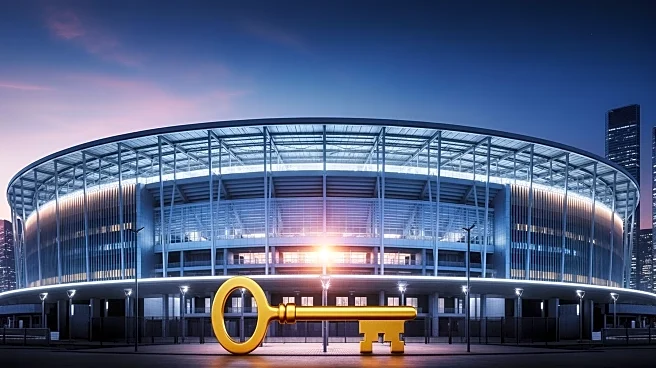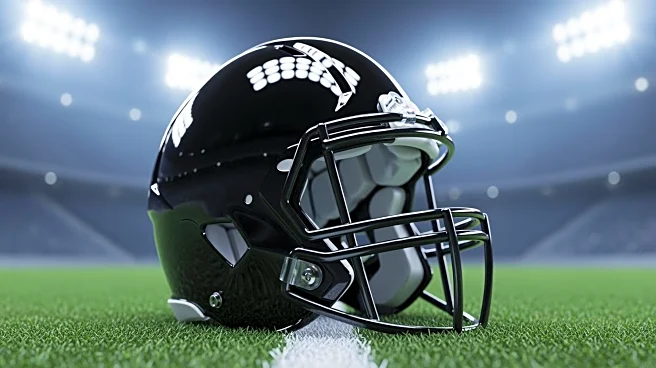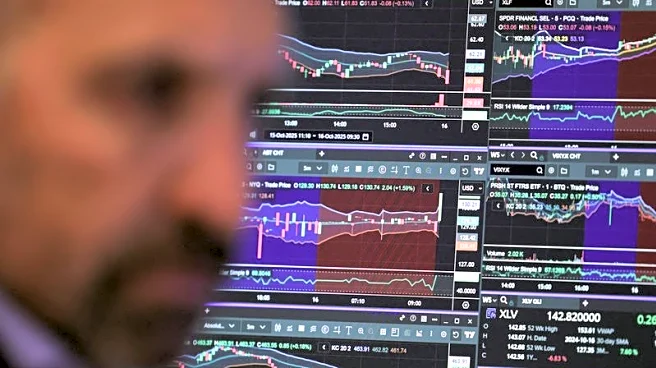What's Happening?
President Trump has expressed interest in having the new Washington Commanders stadium named after him. The stadium, approved in September and expected to open by 2030, will be built at the old RFK Stadium site. The Commanders own the naming rights, typically
sold to corporate sponsors, but the D.C. Council may decide on individual commemoration. Trump has reportedly communicated his desire through back-channel discussions, and he plans to attend a Commanders game, potentially discussing the naming further. The stadium project involves significant investment from both the team and the city, with the land managed by the National Park Service.
Why It's Important?
The potential naming of the stadium after President Trump could impact the Commanders' branding and public relations. It highlights the influence of political figures in sports and the complexities of naming rights negotiations. The decision could affect the financial aspects of the stadium, as naming rights are a lucrative revenue source. Additionally, it reflects broader societal trends where political affiliations increasingly intersect with various public domains, including sports. The move may also influence public opinion and fan engagement, affecting the team's marketability and community relations.
What's Next?
Further discussions are likely between the Commanders, the D.C. Council, and the National Park Service regarding the naming decision. The Commanders may need to navigate political and public sentiment in their branding strategy. The potential naming could lead to public debates and reactions from fans, political leaders, and civil society groups. The outcome may set a precedent for future naming rights and the involvement of political figures in sports-related decisions. Stakeholders will need to consider the implications of intertwining politics with sports branding.
Beyond the Headlines
The naming of the stadium after President Trump could raise ethical questions about the intersection of politics and sports. It may prompt discussions on the appropriateness of using public spaces for political commemoration and the potential impact on community relations. The move could influence cultural perceptions of sports teams and their role in representing broader societal values. Long-term, it may affect how sports franchises navigate political affiliations and public sentiment in their branding strategies.
















